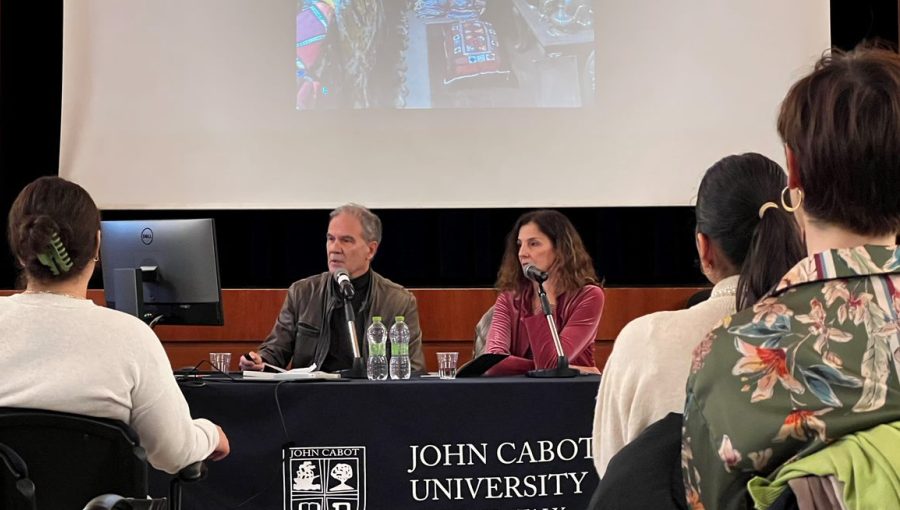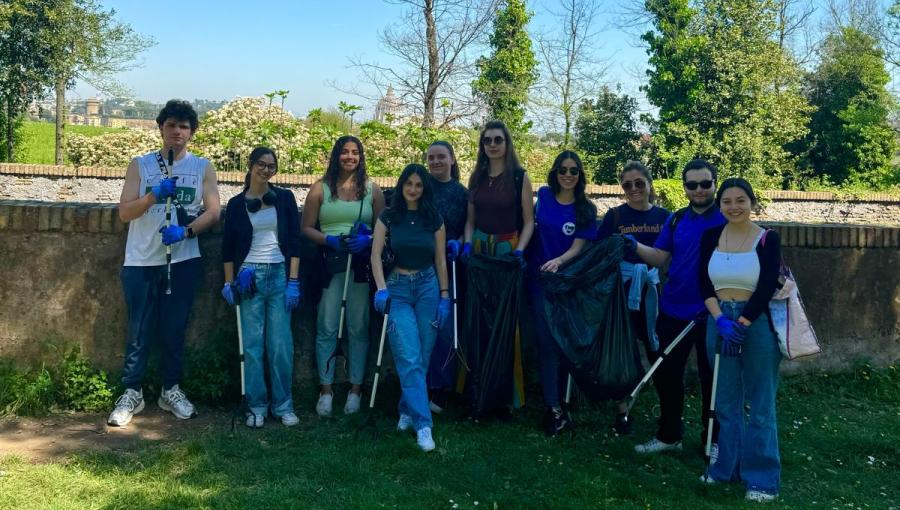STAND Welcomes Authors Edoardo Albinati and Francesca D’Aloja
On March 22, 2023, JCU’s STAND club, in collaboration with the Office of Community Service, welcomed authors Edoardo Albinati and Francesca d’Aloja, for a presentation called “A Humanitarian Journey: Countries, Faces, and Stories.” The speakers, who were introduced by Professor Andrea Lanzone, talked about their recent journey to Afghanistan.

Edoardo Albinati and Francesca D’Aloja
Albinati and d’Aloja explained that in 2022 they were contacted by INTERSOS to visit its medical facilities in Afghanistan. INTERSOS, founded in 1992, is an independent humanitarian organization working on the front line of emergencies, with the purpose of bringing assistance to victims of armed conflicts, natural disasters, and marginalization.
This talk was part of STAND’s efforts to spread awareness within the JCU community on Afghanistan in the wake of the Taliban regime. Albinati and d’Aloja witnessed the humanitarian crisis that is affecting the country and narrated it in an article titled “La miseria, lo stupore. I cocci dell’Afghanistan” (“Misery and Astonishment. The Fragments of Afghanistan”).
Through a series of pictures, the authors documented their experience in Afghanistan and discussed the current situation of the Afghan population under the Taliban regime. The photos show the INTERSOS clinics and spaces, which are supported by some of the medical staff that provides essential services in places where there is no medical aid. Thanks to the active help of INTERSOS, people in Afghanistan have at least one access point to aid, nutrition, and safety.
Albinati, who had visited Kabul 20 years prior, recalls a completely different atmosphere from the one he found during this trip. D’Aloja expressed feelings of invisibility, stemming from her being a woman, and underlined multiple times that she was often the only woman in social gatherings.
D’Aloja stresses the inhumane living conditions Afghan women are facing since the Taliban takeover. She highlighted how very few women were seen around and they were all wearing a Burka and masks and looked like “ghosts in the crowd.” Women are not allowed to have jobs, practice sports, study, or leave the house without being accompanied by male relatives.
The two authors also highlighted the poverty that many families have been affected by due to the doubling of prices for primary goods such as gas and flour, while salaries, on the other hand, have remained unchanged. While visiting some Afghan families, Albinati and D’Aloja were touched by the tragic stories of parents worrying that some of their children would not survive the rigid winter.
In Afghanistan, INTERSOS works to provide health services, food, and protection programs using a community needs-based approach. INTERSOS’ teams are composed of medical staff and protection experts to guarantee basic health, nutritional care services, psychosocial support, and interventions to ensure the livelihoods of vulnerable people.
(Arianna Zomparelli, Juju Ferreira)





